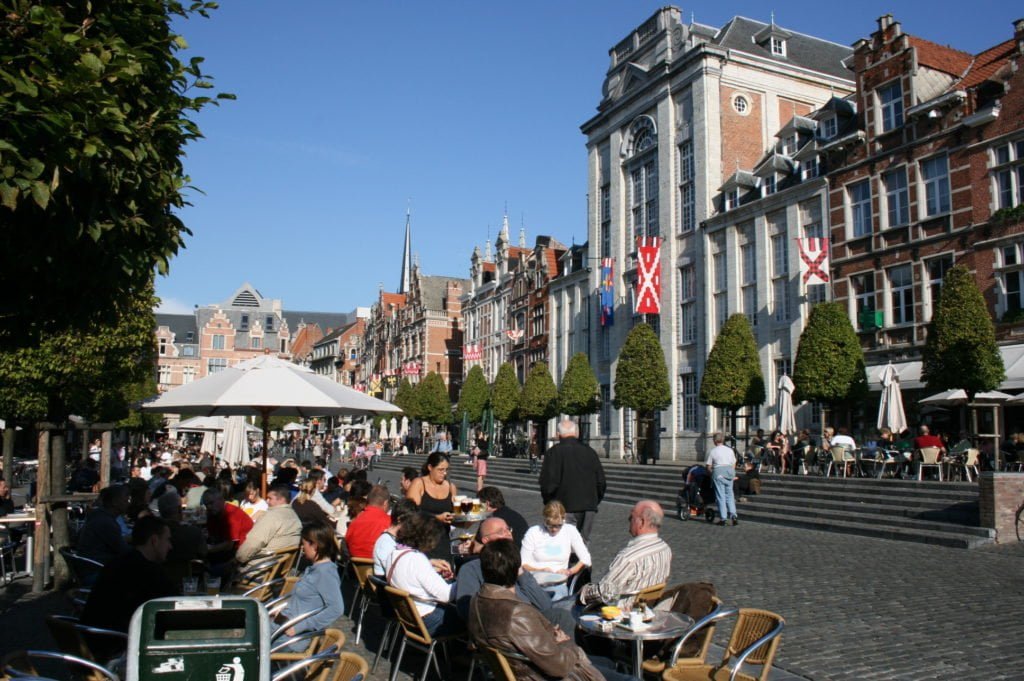WeCount: Belgian and Spanish pilots engage 400 families in traffic counting for sustainable mobility
Brussels, 21st of September 2020 - Two citizen science pilots are fully underway in Belgium (Leuven) and Spain (Madrid & Barcelona), involving 400 households. Citizens were given sensors to be mounted in their household’s windows to quantify local road transport and the speed of cars, large vehicles, cyclists and pedestrians. Hybrid events took place to guide them through the process. The activities were developed in the scope of the EU-funded project WeCount.
WeCount is the first European Citizen Science initiative to enable citizens to create a substantially better understanding of road traffic flows at local level, also gathering greater insights into the impact of local road transport on issues such as air pollution, public health, and road safety. It uses innovative low cost, automated, road traffic counting sensors (Telraam) and multi-stakeholder engagement mechanisms (workshops and online interactions) across six pilot cities in Europe: Leuven (BE), Madrid/Barcelona (ES), Ljubljana (SI), Dublin (IE) and Cardiff (UK).
Over the summer, several citizen engagement activities were initiated in the pilot cases in Leuven, Madrid and Barcelona. The Leuven experience had a brief face-to-face corona-proof interaction in the city centre to distribute the Telraam sensors, combined with online training on the installation process. As for the Spanish experience three participatory workshops were held online for each city focusing on exploring local mobility issues, introducing traffic counting techniques, and instructions on how to install the sensor.
The project is now starting to collect useful data, but these first steps allowed for a better understanding of the matters that concern participants (by neighbourhood and by demographics), and to engage and nurture community champions, develop and test resources for smooth online interactions. The traffic sensors installed allowed to identify changes in mobility patterns triggered by COVID-19, but also changes related to specific timings in the year. On the one hand, with more people working from home, far fewer people are travelling into city centres, with large reductions in both car travel and public transport, evidenced by data collected by Telraam in Belgium. On the other hand, as society tries to come to a daily-routine resembling a pre-COVID world, one of the deployed sensors in Wijgmaal, a borough of Leuven (BE), reveals the increase in traffic as schools have opened on September 1st.
Citizen’s motivation for engaging in Citizen Science activities are multi-fold but seem to touch upon two issues: environmental concerns and the will to contribute for more sustainable mobility in their local context. As stated by WeCount participants from Madrid, “We’d like to know more about mobility in Madrid centre to promote appropriate alternatives that contribute towards a sustainable, shared, and smart mobility”. A participant from Leuven shared his excitement to "I want to contribute to traffic mapping of Leuven centre”.
In Leuven, deployment is ongoing with 211 participants and 64 sensors active as of early September, whereas the Madrid/Barcelona has 105 members. The deployment of more sensors is expected in the months to come, both in Leuven and Madrid/Barcelona. In the Spanish case, the widespread roll-out is planned for late September, through partnerships with local group Vigilantes del Aire, Adigital, and MediaLab Prado. The traffic-counting sensor will be distributed together with strawberry plants, which will act as air quality sensors.
The pilot cases in Dublin, Cardiff and Ljubljana will start their roll-out in the last quarter of 2020, leading to the full setup of the WeCount network. The project will generate scientific knowledge in the field of mobility and environmental pollution and inform future decision-making contributing to the development of co-designed, informed solutions to tackle a variety of road transport challenges.
About WeCount
WeCount operates under the Research and Innovation Actions funding scheme, as facilitated by Horizon 2020 and the ‘Science with and for Society’ programme, both of which aim to increase society’s appetite for innovation and encourage collaboration within the transport policy research community as it works to build better local transport systems together. WeCount will run until November 2021. This project has received funding from the European Union's Horizon 2020 Research and Innovation Programme under Grant Agreement No 872743.
More information: https://www.we-count.net/
Follow us on Twitter: @WecountH
Sign-up for our newsletter here.


